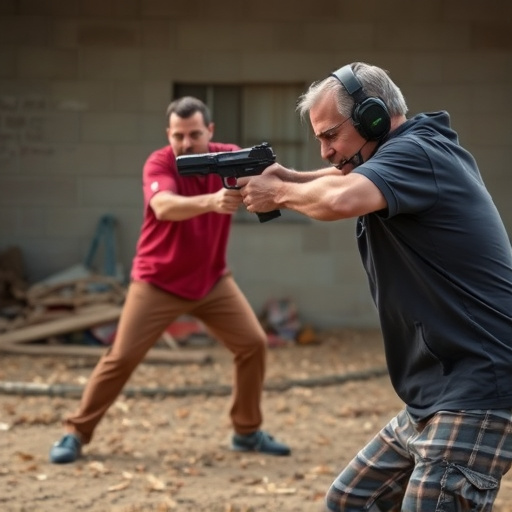Understanding state laws is vital before buying compact stun guns with flashlights. Age restrictions, background checks, and training are common, but exceptions exist for these specific devices. Compliance ensures legal use and promotes safety in public.
“In recent years, civilian ownership of compact stun guns with flashlights has gained traction, raising questions about state laws governing their acquisition and use. Understanding these regulations is paramount for those seeking to protect themselves and their loved ones. This article delves into the intricacies of state laws regarding civilian taser ownership, exploring requirements for legal purchase and possession of compact stun guns with flashlights, restrictions, rights, and responsibilities.”
- Understanding State Laws on Civilian Taser Ownership
- Requirements for Legal Purchase and Possession of Compact Stun Guns with Flashlight
- Restrictions and Exceptions: Who Can and Cannot Own a Taser?
- Rights and Responsibilities: Using Your Legal Taser in Public
Understanding State Laws on Civilian Taser Ownership
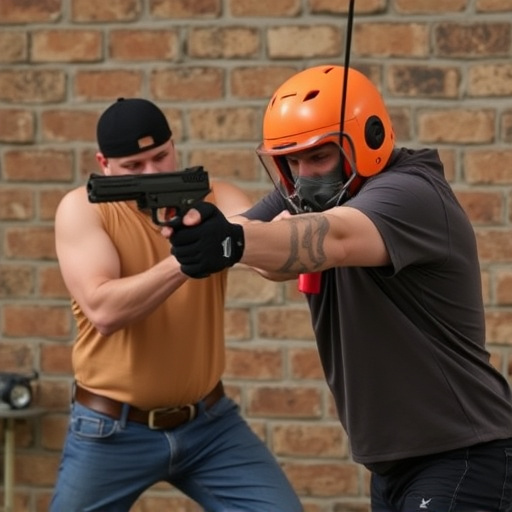
Understanding state laws on civilian taser ownership is crucial before considering purchasing a compact stun gun with flashlight. Each US state has its own set of regulations regarding the possession and use of less-lethal weapons like tasers. These laws vary greatly, affecting issues such as who can own a taser, where they can be carried, and under what circumstances they can be used. For instance, some states permit only law enforcement officers or licensed individuals to possess tasers, while others allow qualified civilians to carry them for self-defense.
Civilian taser ownership advocates often point to the need for personal protection as a primary reason for relaxed regulations. They argue that compact stun guns with flashlights offer a non-lethal option for individuals facing potential threats. However, critics caution against expanding taser accessibility, citing concerns about misuse and accidental injuries. Navigating these state laws is essential for responsible taser ownership, ensuring compliance with local regulations while pursuing personal safety measures.
Requirements for Legal Purchase and Possession of Compact Stun Guns with Flashlight
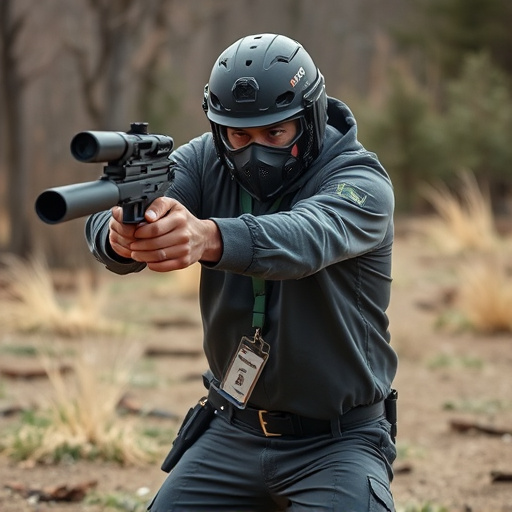
In many states, the legal purchase and possession of compact stun guns with flashlights are subject to specific requirements aimed at ensuring public safety. Potential buyers must typically be over a certain age, often 18 or 21 years old, and may need to pass a background check. Some states also mandate a training course or permit for stun gun ownership, reinforcing responsible use.
Additional regulations may include registration of the device with local law enforcement and proof of identity at point of purchase. These measures reflect a balance between empowering individuals with personal protection and preventing misuse. The specific rules vary by state, so understanding local laws is crucial before considering the acquisition of compact stun guns equipped with flashlights.
Restrictions and Exceptions: Who Can and Cannot Own a Taser?
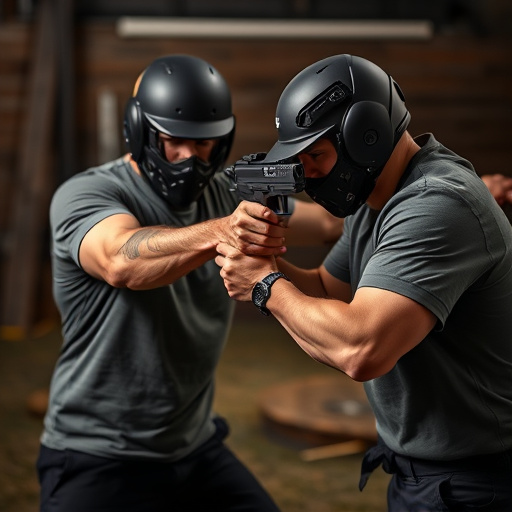
In most jurisdictions, civilian ownership of tasers is regulated under state laws, which come with specific restrictions and exceptions. Generally, individuals looking to purchase a taser must meet certain criteria related to age, background checks, training, and intent. For instance, many states require that a person be at least 18 or 21 years old to own a taser legally. Additionally, thorough background checks are often mandated to ensure the buyer does not have any criminal records or history of violence that might disqualify them.
One notable exception in some regions is the availability of compact stun guns with flashlight features. These devices are often marketed as personal protection tools and can be purchased without a permit or extensive training, making them more accessible to civilians. However, users must still adhere to local laws regarding self-defense and use, ensuring they employ such devices responsibly and only in situations requiring immediate protection.
Rights and Responsibilities: Using Your Legal Taser in Public
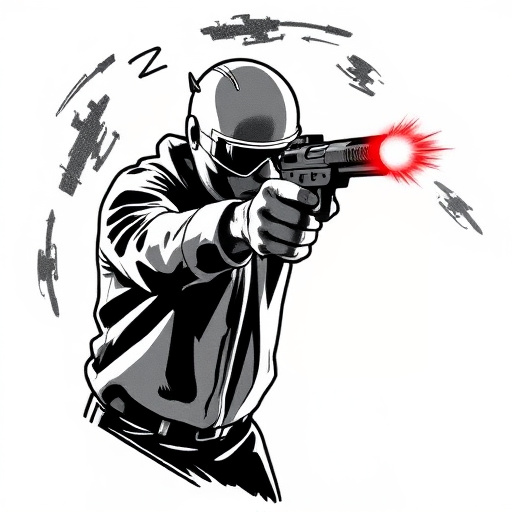
When civilians legally own a taser, they come equipped with both rights and responsibilities. One of the key aspects to understand is that using a taser in public spaces is subject to state laws and regulations. It’s important to know when and where it’s legal to deploy your compact stun gun with flashlight, as well as any restrictions or requirements placed on its use.
Each state has its own set of rules governing civilian taser ownership and usage. Some states allow for open carry, while others require permits or registration. Additionally, there might be limitations on the power output, specific areas where tasers are prohibited (like schools or courthouses), and even restrictions on who can legally possess a stun gun. Being aware of these regulations not only ensures compliance with the law but also promotes responsible use in public settings.
In conclusion, understanding your state’s laws regarding civilian taser ownership, particularly compact stun guns with flashlights, is paramount for responsible and legal possession. While restrictions vary, many states allow qualified individuals to own these devices for personal protection. Always check local regulations and be aware of your rights and responsibilities to ensure a safe and lawful experience.
